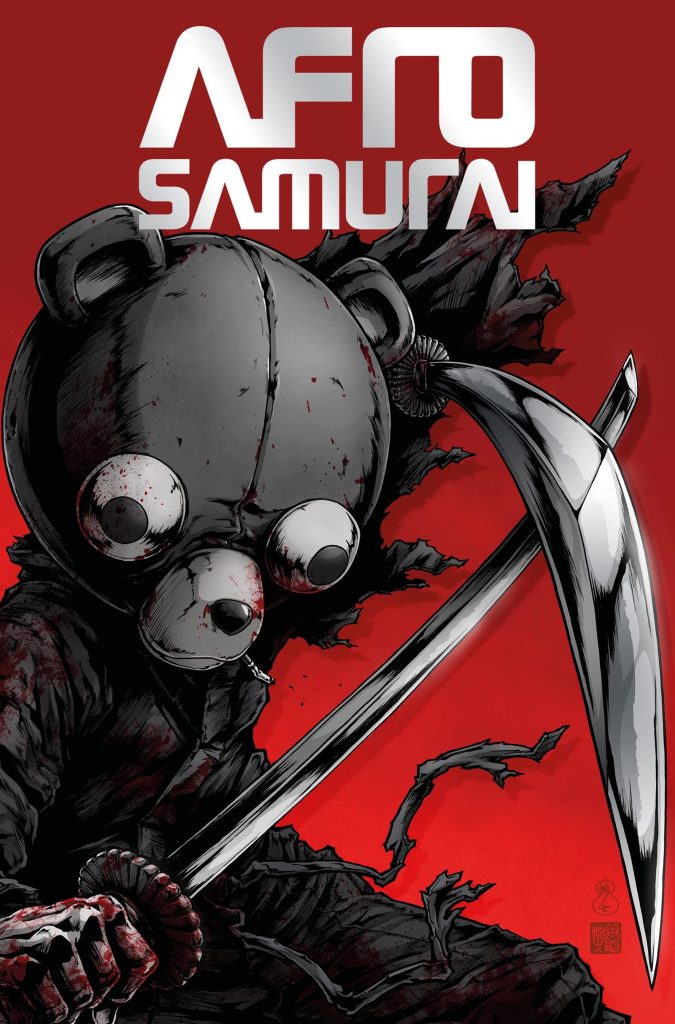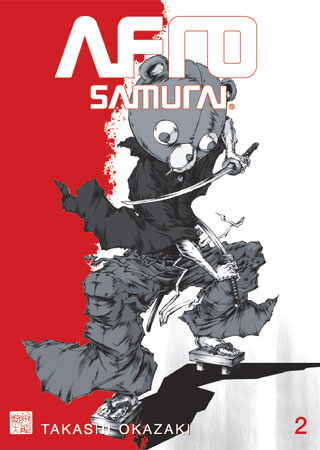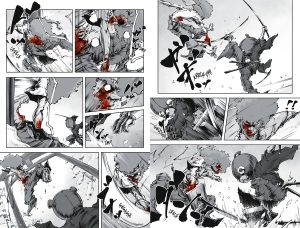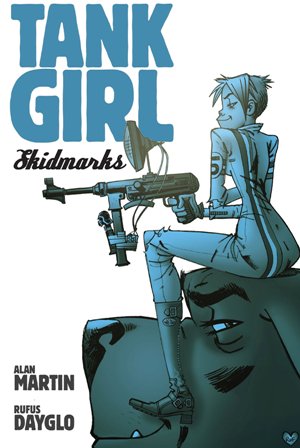Review by Karl Verhoven
An appealing mash-up of samurai comics and hip-hop gangster culture infused Afro Samurai’s mission of revenge, but Afro Samurai 01 ended with his greatest enemy dressed as a giant teddy bear throwing him off a waterfall.
It’s assumed at first that this only proved a temporary impediment as we learn he was found floating down the river with a broken arm and is adopted by a family of outcasts and what’s surely going to be a tragic romance is embarked upon. Afro Samurai swears he’ll return for Otsuru, but his quest to deal with the man responsible for his father’s death is all-encompassing. However, Takashi Okazaki has a shock in store, and it’s not the last in this concluding volume. It seems he’s divested himself of the need to produce a homage to his influences, but the result isn’t as much fun.
What may have been presumed to have been a direct continuation of the first volume is actually a flashback sequence. Between the death of his father and the quest for revenge there was a considerable period of growing into adulthood, and this was spent in a community of outcasts and the faith they developed. Even when viewed as the set-up for tragedy, the cheery days of friendship are too saccharine and too prolonged, and during successive glimpses into the past their repetition saps the energy. There’s a vague message about how the hunger for revenge can be all-consuming, eradicating any goodness within, but it’s little more than lip service to samurai tradition. The pontificating villains are more irritating also, with awkwardly phrased dialogue, although that could be the translation.
One of the surprises is how Okazaki complicates the quest for revenge by laying out how Afro Samurai’s never been aware of the context of his past. By this point the random commentator from the first volume has a background and purpose, but his cackling presence is even less welcome. Pompous, yet hollow phrases such as “Humans cannot survive without a God to control them. That’s just the way of things” accompany Afro Samurai slashing his way through whatever’s thrown at him. You’ll need a good memory to dredge up the identity of the man who confronts him over the final pages, although he surely represents one of many.
Although this conclusion offers a few surprises, once past the slow flashback, for the most part it’s just more of the same, which appears a lot of effort for no great achievement. Read independently the energy and unique approach may strike as more interesting, but Okazaki really said everything he had to say in Afro Samurai 01.
As before, the 2022 Titan edition is greatly preferable to the 2008 Seven Seas publication for the larger format.






